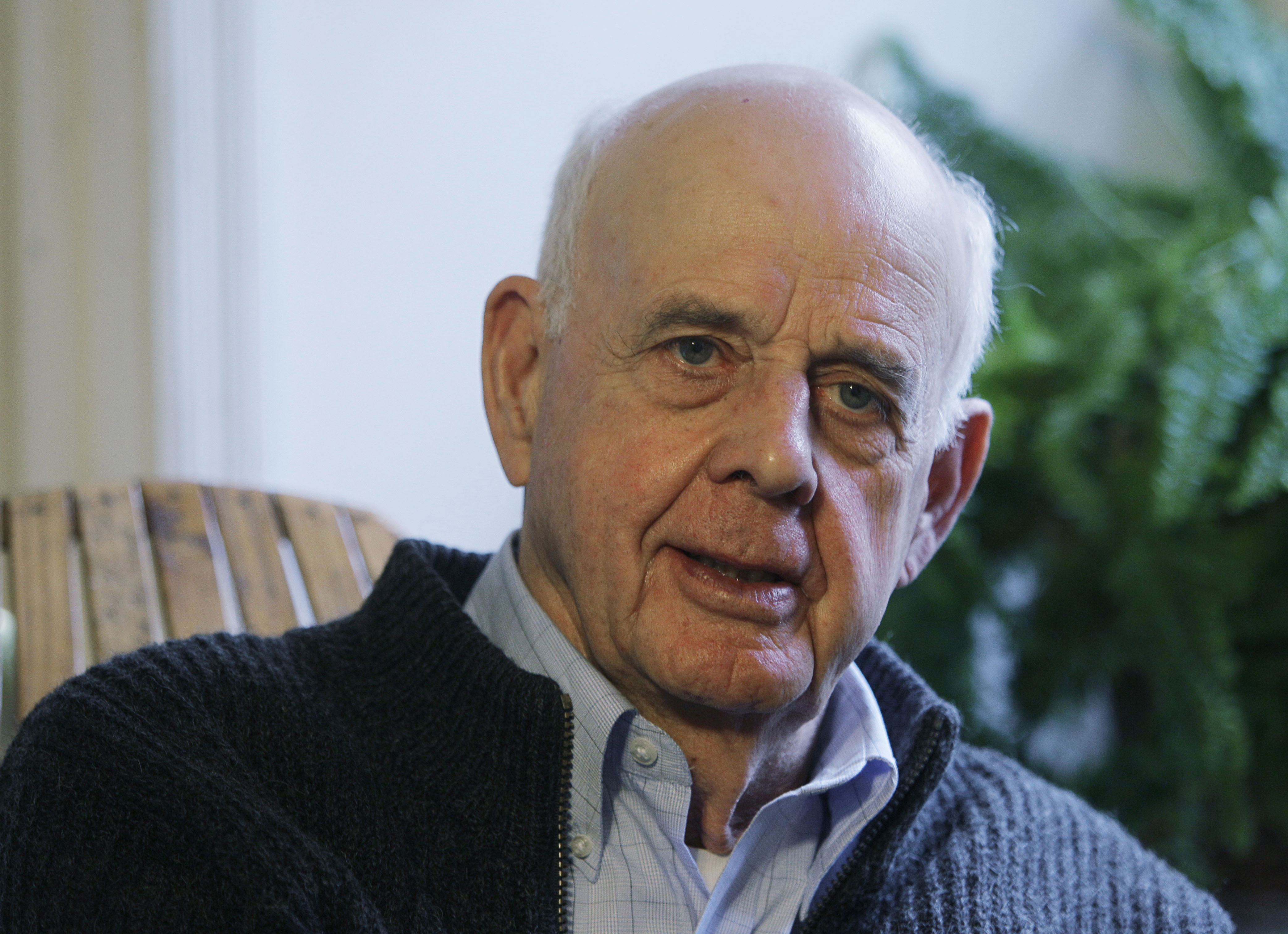Wendell Berry's 6 favorite books about environmental protection
The poet and environmental activist recommends inspiring works about how to interact with the land

A free daily email with the biggest news stories of the day – and the best features from TheWeek.com
You are now subscribed
Your newsletter sign-up was successful
Farmers of Forty Centuries: Organic Farming in China, Korea, and Japan by F. H. King (Dover, $17). This book, first published in 1911, is an account of King’s studies of the enduring small peasant farms of three Asian countries. How did the people keep their land productive for 4,000 years? By returning all "wastes" to the soil, leaving the fertility cycle intact.
Tree Crops: A Permanent Agriculture by J. Russell Smith (Island Press, $60). Published in 1929, Tree Crops confronts the error we made when we "carried to the hills the agriculture of the flat plain." This is another "travel book": Smith, a Columbia University geographer, seeks and finds better ways to interact with the land.
An Agricultural Testament by Sir Albert Howard (Benediction, $23). Published in 1943, this is one of the major books written by Howard, a British scientist who worked in India for decades. It argues, rightly, that farming can be made to last only by obeying the laws and incorporating the systems of nature. "Mother Earth never attempts to farm without livestock," Howard wrote. "There is no waste; the processes of growth and the processes of decay balance one another."
The Week
Escape your echo chamber. Get the facts behind the news, plus analysis from multiple perspectives.

Sign up for The Week's Free Newsletters
From our morning news briefing to a weekly Good News Newsletter, get the best of The Week delivered directly to your inbox.
From our morning news briefing to a weekly Good News Newsletter, get the best of The Week delivered directly to your inbox.
A Sand County Almanac by Aldo Leopold (Ballantine, $8). Leopold’s masterwork, posthumously published in 1949, begins with close observation of the plant and animal life on the author’s Wisconsin farm and then expands across North America. The book ultimately proposes a "land ethic" by which a human society might live in harmony with the biotic community.
Home Place: Essays on Ecology by Stan Rowe (NeWest Press, $20). This book insists upon the importance of the ecosphere (not the biosphere, a term that refers only to the living environment) as the inescapable context of our life. Rowe wrote that we should "live on the annual interest and leave the land’s capital alone."
Nature as Measure: The Selected Essays of Wes Jackson (Counterpoint, $17). A scientist and advocate, Wes Jackson is fully and honorably the heir of the foregoing five writers. This 2011 book addresses "the problem of agriculture" and the prospects for practical solutions.
—Wendell Berry’s newest essay collection, Our Only World, makes an urgent plea for an end to destructive land use practices.
A free daily email with the biggest news stories of the day – and the best features from TheWeek.com
-
 The environmental cost of GLP-1s
The environmental cost of GLP-1sThe explainer Producing the drugs is a dirty process
-
 Greenland’s capital becomes ground zero for the country’s diplomatic straits
Greenland’s capital becomes ground zero for the country’s diplomatic straitsIN THE SPOTLIGHT A flurry of new consular activity in Nuuk shows how important Greenland has become to Europeans’ anxiety about American imperialism
-
 ‘This is something that happens all too often’
‘This is something that happens all too often’Instant Opinion Opinion, comment and editorials of the day